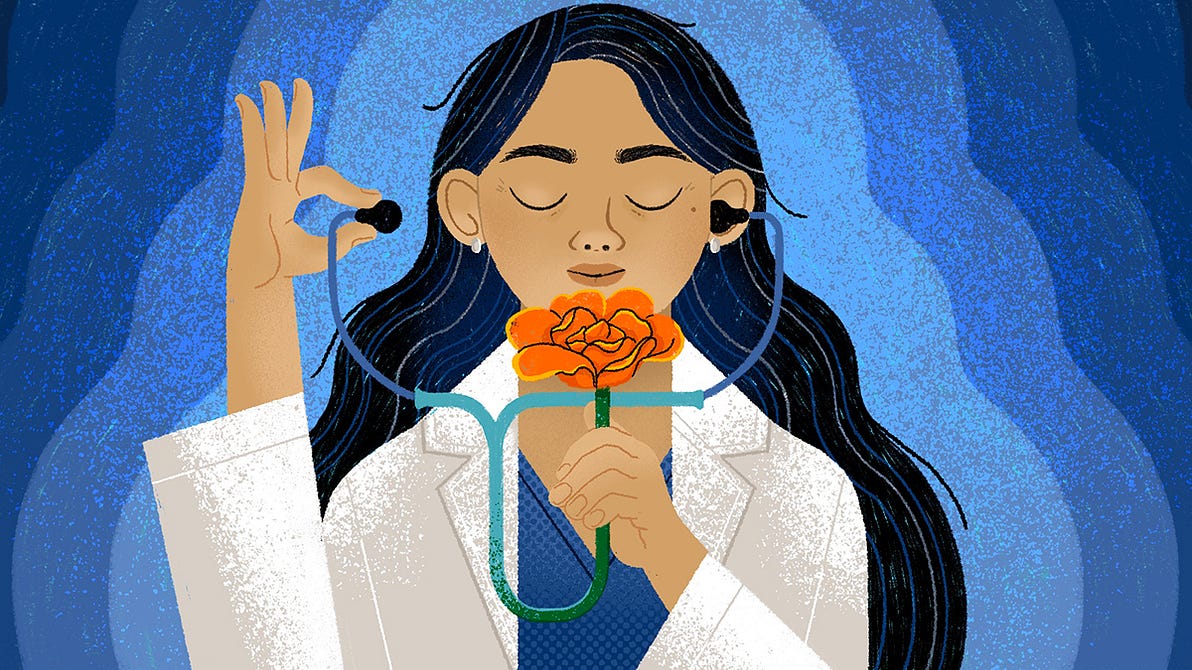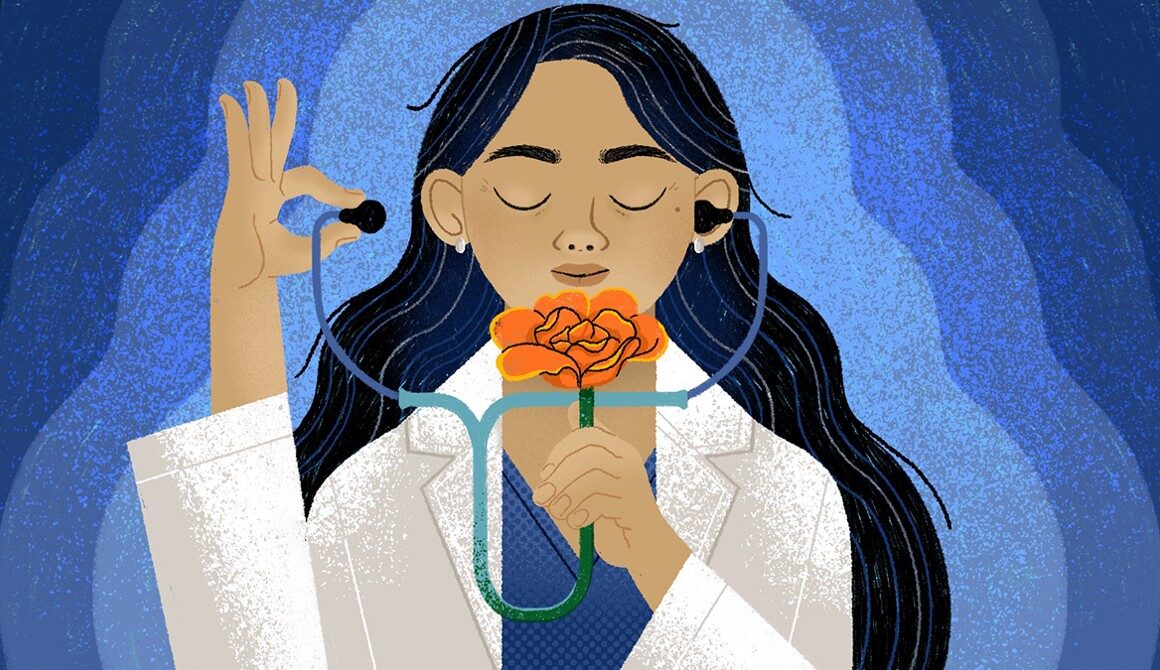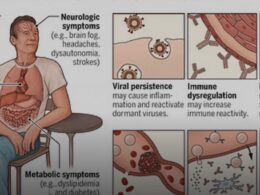The culture is one of silence and self-sacrifice that glorifies overwork. It’s no wonder that today health care professionals are experiencing a mental health crisis.
Harvard Business Review
by Tammie Chang, MD
March 28, 2022
What is the problem?
- 76% of physicians report moderate to severe burnout, with the risk for burnout significantly higher among female than male physicians.
- Physicians have the highest rate of suicide of any profession — one in five has considered it — and
- Women physicians are at a 400% higher risk of dying by suicide than women in the general population.
Summary
Seventy-six percent of physicians report moderate to severe burnout, with the risk significantly higher among female than male physicians.
76% of physicians report moderate to severe burnout, with the risk significantly higher among female than male physicians.
While the reasons behind these findings may vary depending on the impacted person, many are rooted in the fact that
- the culture of medicine is still male-dominated and
- has yet to adapt to support the needs of women who also disproportionately shoulder caregiving responsibilities at home .
If you’re considering entering this field, what can you do to avoid burnout?
1.Know that not everything is your responsibility.
Physicians must show up for themselves before they can do right by others.Setting healthy boundaries around your work, life, and well-being is what will allow you to deliver the best care to your patients.
2.Prioritize sleep.
A plethora of research reinforces the critical role a physician’s sleep plays in patient safety and patient outcomes. A lack of appropriate sleep is also strongly associated with the increased risk for physician depression, anxiety, and suicidal ideation.
3.Invest in your total well-being.
You well-being is measured in five key areas: emotional, physical, social, workplace, and societal. Attend to each of these areas of your life — not just the ones associated with your job.
You well-being is measured in five key areas: emotional, physical, social, workplace, and societal. Attend to each of these areas of your life — not just the ones associated with your job.
Originally published at https://hbr.org on March 28, 2022, containing the long version of the article.

For many people in my field, becoming a doctor has been a dream since childhood.
I still remember the moment in my senior year of high school when my call to serve and heal became clear. Deeply touched by my connection with a nursing home patient who had Alzheimer’s disease, I was drawn to give back through empathy and compassion, to care for those who needed it most.
Fifteen years later — after completing the required grueling education and training — I became a pediatric oncologist devoted to caring for children with blood and life-threatening cancers. It was a job that gave me real purpose and I had jumped through every hoop imaginable to prepare for it. Finally, I told myself, I had made it.
But my journey was far from over.
Fast forward another five years and I was in the darkest place of my life. I was so severely burned out that I found myself dreaming of ways to end it. My work had become everything, and I wanted to stop the pain it was causing me.
My breaking point came the day I spoke with a family making the difficult decision to withdraw care from their child with end-stage cancer.
Following that long and emotionally challenging encounter, I was done. While driving home, I experienced the strong and chilling urge to drive my car off a cliff.
That moment became the catalyst for life as I live it today. It was the moment I knew I needed to ask for help. I took a leave of absence from my work as a physician and invested in a therapist and coaching.
That moment became the catalyst for life as I live it today. It was the moment I knew I needed to ask for help. I took a leave of absence from my work as a physician and invested in a therapist and coaching.
Since then, I’ve learned that my story is shared by countless other physicians, especially those who are women.
The data is unsettling:
- 76% of physicians report moderate to severe burnout, with the risk for burnout significantly higher among female than male physicians.
- Physicians have the highest rate of suicide of any profession — one in five has considered it — and
- women physicians are at a 400% higher risk of dying by suicide than women in the general population.
While the reasons behind these findings may vary depending on the impacted person, many are rooted in the fact that the culture of medicine is still male-dominated and has yet to adapt to support the needs of women who also disproportionately shoulder the caregiving, household, and childcare load at home.
Why did it take me so long to discover these statistics?
In my experience, this information is not widely shared because our medical culture is cloaked in the perception that physicians are all-knowing and invincible.
Workers in the field are trained not to complain or show emotion, and to soldier on.
The culture is one of silence and self-sacrifice that glorifies overwork. It’s no wonder that today health care professionals are experiencing a mental health crisis.
In my experience, this information is not widely shared because our medical culture is cloaked in the perception that physicians are all-knowing and invincible.
The culture is one of silence and self-sacrifice that glorifies overwork. It’s no wonder that today health care professionals are experiencing a mental health crisis.
Therapy and coaching are two tools that helped me cope when I was at my lowest point. I found a supportive community, and eventually, became trained as a coach myself.
Today my work is focused on helping other physicians not only survive, but thrive, in their lives and careers.
Through this work, I’ve learned many lessons that are critical to trainees and young doctors considering pursuing this field — things I wish I had known much sooner.
Here are three important learnings that have changed my career.
1.Not everything is your responsibility.
As physicians, we’re trained to take on everything related to patient care and beyond as our own responsibility.
We’re trained to believe that the patient must always come first, before all else.
Finally, we’re trained to never say no — even if doing so would be the kinder, safer action.
The truth is: These rules are flawed.
We must show up for ourselves before we can do right by others.
Setting healthy boundaries around your time and energy is what will allow you to deliver the best care to your patients.
The following scenarios illustrate the dynamics of setting healthier limits and are rules I have set for myself in order to deliver patients better care:
- When patients bring a list of 10 complaints to a visit, address only the top two. Then schedule a follow up appointment to address the rest.
It’s necessary to limit the health concerns you can realistically address in a single appointment for your long-term well-being and also to provide the patient with the best care possible.
Most physicians are only allotted 10 or 15 minutes per patient.
If you try to address every need at once, the delays will quickly snowball and limit your time with others who also need your help.
- When a staff member presents a task that is beyond the scope of your role as a physician — i.e. faxing prior authorization requests to insurance companies — it is perfectly acceptable to delegate that task to the appropriate individual.
We do not personally need to handle every issue.
- When a clinical team is short-staffed, physicians do not have to cover all functions by default.
Instead, we can allow others to help, too.
It is not your responsibility to “fix” everything.
2.Sleep is critical
Physicians are trained to live without sleep.
Prior to the institution of current duty-hour restrictions, physicians worked on-call for more than 40 consecutive hours and could even work more than 120 hours per week.
A plethora of research reinforces the critical role a physician’s sleep plays in patient safety and patient outcomes.
A lack of appropriate sleep is also strongly associated with the increased risk for physician depression, anxiety, and suicidal ideation.
Yet even though duty-hour restrictions now limit the number of hours trainees can work, the culture of medicine still doesn’t emphasize the value of sleep.
A lack of appropriate sleep is also strongly associated with the increased risk for physician depression, anxiety, and suicidal ideation.
Sleep habits that are critical to implement early in your career include:
- Making sleep the utmost priority: Aim for a minimum of seven or eight hours a night.
- Limiting your alcohol consumption to support the deepest and highest quality sleep possible.
- Intentionally choosing a position with limited on-call and overnight work demands.
If you work for an institution or organization where the culture is competitive and encourages overwork, burnout, and sleep deprivation, it may be time to re-evaluate where you work. No job is worth sacrificing your well-being.
If you work for an institution or organization where the culture is competitive and encourages overwork, burnout, and sleep deprivation, it may be time to re-evaluate where you work. No job is worth sacrificing your well-being.
3.Invest in your total well-being
As physicians our identities are tied to our profession, but we are human beings first.
Our well-being is measured in five key areas: emotional, physical, social, workplace, and societal. Our work is only one component of the five.
Having a fulfilling personal life and community outside of work, will enable you to be more present when you’re at work, too.
As physicians our identities are tied to our profession, but we are human beings first.
Our well-being is measured in five key areas: emotional, physical, social, workplace, and societal. Our work is only one component of the five.
To implement total wellness, try to engage in the following:
- Make an intentional effort to attend to each of the five areas of your life — not just one.
Invest in activities that help you to manage
- your stress and mental health (emotional),
- exercise and eat well (physical),
- make time to build a strong and supportive community outside of work (social), and
- increase your belonging to a cause or activity greater than yourself (societal),
- in addition to doing work that feels meaningful (workplace).
Make friendships and connections both within and outside of work a priority — even if it means taking a quick 10 minutes out of your busy day to catch up with a loved one.
Significant evidence indicates that social support and feeling connected to others can help improve our physical health and improve our overall mental health.
- Get involved in your community outside of medicine.
Volunteer with your local community, school, charities, or non-profit groups.
Being a part of something greater than your own immediate life not only gives you more fulfillment and purpose, but is also essential to your well-being.
Consciously choose activities that bring you meaning beyond your work identity as a physician.
Conclusion
Making these changes has transformed my life and career as a pediatric oncologist, and medical director of provider wellness for my health care system.
I’ve not only begun to fall back in love with my work, but I’m also a better physician, leader, wife, friend, and human being.
If there is one lesson I hope you take from my experience, it’s this: In your own life, patients do not come first — you do. If the physician is not well, she can’t provide good care for patients or for anyone else.
Give yourself the grace and compassion that you strive to give to your patients and colleagues.
When we advocate for ourselves today, we model strength and leadership for tomorrow’s physicians.
If there is one lesson I hope you take from my experience, it’s this: In your own life, patients do not come first — you do. If the physician is not well, she can’t provide good care for patients or for anyone else.
Originally published at https://hbr.org on March 28, 2022.












